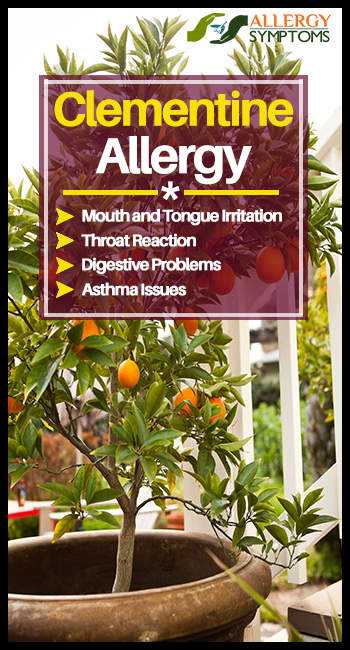Clementine belongs to citrus family and it resembles like an orange. Citrus fruits are renowned source of vitamin C, A, folate, fiber, antioxidants, minerals and other assorted nutrients.
Even doctors recommend these fruits as they are able to treat health and skin ailments. But, unfortunately clementine and other citrus fruits may trigger allergic reaction in few sensitive people. Despite the health benefits, few among us have to stay away from these fruits. Else, you’ve to experience clementine allergy.
Studies show that about 1-2 % of world population and 4% of US population is suffering from food allergy. Sadly, there is no effective measure to treat this infection. The only solution available is to avoid the consumption of that particular fruit. (1)
Also read: Stevia Allergy
Clementine allergy triggers when proteins in this fruit are treated as harmful substances by immune system. But, the fact is they are harmless. To fight these substances immune system produces antibodies, the reaction between these two substances leads to allergic symptoms.
Not just clementine, other fruits like grapefruit, plums, tangerine, melons, lime and lemon may trigger the infection. You can’t finalize the irritant based on symptoms, because they differ from person to person.
Prominent symptoms of clementine allergy are as follows.
1. Mouth and Tongue Irritation
After an hour of eating clementine, you may experience ulcers over the tongue, lesion in mouth, lips and tingling sensation in mouth. Even throat will be affected by this allergic reaction and you may find difficult to swallow food.
2. Throat Reaction
In some people allergy may confined to mouth. But, in others the infection may make throat uncomfortable. Swelling, difficulty in breathing, wheezing and itchiness can be accompanied.
Also read: Foods with Peanuts
3. Digestive Problems

You may not experience this issue right after eating. After 1-2 hours the reaction starts and signs like nausea, diarrhea, abdominal pain and stomach cramps appear. You must at once reach doctor for diagnosis.
4. Asthma Issues
People who are allergic to clementine may even get asthma attack. Which means this fruit calls for severe reactions as well. People may have a very difficult time breathing which may be quite often.
Other symptoms include, difficulty in breathing, watery and itchy eyes, sneezing, coughing and hives. Skin infections like eczema, redness and swelling of the face may appear. Sudden drop in blood pressure and fainting are serious symptoms that need immediate medical attention.
One of the best ways to prevent clementine allergy is to avoid this fruit and other fruits that include similar proteins. You’re advised to check ingredients list over store bought drinks and foods.

